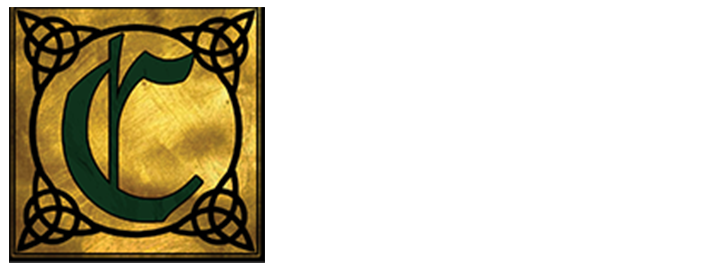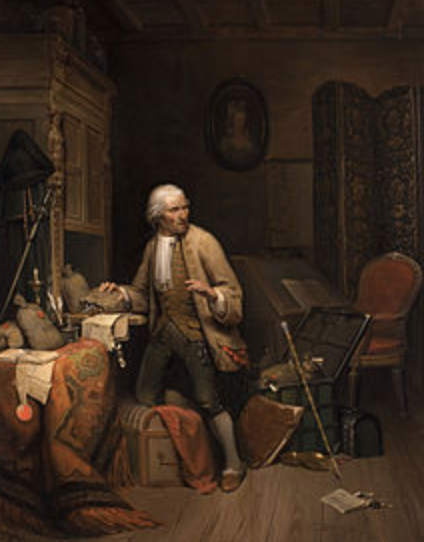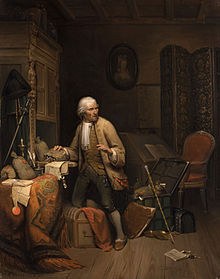I was too poor to buy books.
No, I didn’t steal them.
Years ago, I was asked by a local group to give a talk about business ethics.Since my degrees focus on “ethics” but not “business” I decided I should visit a bookstore to see what business leaders were saying.
 Book stores were still plentiful in the 1980’s. I visited one closest to me. The business section was clearly marked, I found half a dozen books to peruse, and began to scan the pages.
Book stores were still plentiful in the 1980’s. I visited one closest to me. The business section was clearly marked, I found half a dozen books to peruse, and began to scan the pages.
It took me all of thirty minutes to make the startling discovery.
All the books and their authors were stealing their ideas from Solomon in The Bible.
Authors were using biblical principles straight out of Proverbs to communicate business principles.
I was shocked. My research, document-everything, graduate-education persona was incredulous!
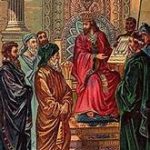 How could business leaders, bound by ethical principles espoused in their own books, steal from Solomon?!
How could business leaders, bound by ethical principles espoused in their own books, steal from Solomon?!
And then it hit me. The authors couldn’t help themselves. The books simply reflected what theologians call “common grace.” I realized that I was viewing an example of God’s beneficence to all people.
We find ethical principles for everyday living in any subject; business is no exception.
The book of Proverbs commends itself to all people, cultures, places, and times because God has embedded basic principles within His creation. Life “works” a certain way because God’s consistency and dependability are woven through His Works.
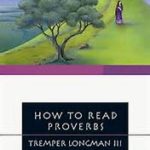 This summer I have been preparing to teach on “wisdom”in my church body to adults on Sunday mornings. In my study I was re-reading Tremper Longman’s book How to Read Proverbs. I was struck again by the “common grace” approach to life when I revisited Longman’s connection to Daniel Goleman’s book Emotional Intelligence. Dr. Longman tied EQ ideas directly to proverbial wisdom. In his words, Goleman’s “knowing how” is the connection to wisdom. God’s Word in Proverbs explains there is much more we need to navigate in life than “knowing what.” We need to know how.
This summer I have been preparing to teach on “wisdom”in my church body to adults on Sunday mornings. In my study I was re-reading Tremper Longman’s book How to Read Proverbs. I was struck again by the “common grace” approach to life when I revisited Longman’s connection to Daniel Goleman’s book Emotional Intelligence. Dr. Longman tied EQ ideas directly to proverbial wisdom. In his words, Goleman’s “knowing how” is the connection to wisdom. God’s Word in Proverbs explains there is much more we need to navigate in life than “knowing what.” We need to know how.
Proverbs is a “how” book. We are taught about situations that arise in daily life for which we need foresight and thoughtful pondering. Proverbs teaches us how best—not how perfectly—to respond, react, remember, or resist.
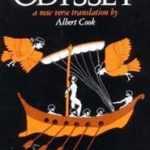 I am presently teaching a literature course to high school students where “how” will always be linked with everyday living. Juniors and I will recite the importance of memory, navigating Odysseus’ return home in Homer’s Odyssey. We will ponder the distinctiveness of the Genesis origin ideals against the materialistic ways of the Enuma Elish. Virgil’s Aeneid will point us to our need to live piously, loyally, and respectfully.
I am presently teaching a literature course to high school students where “how” will always be linked with everyday living. Juniors and I will recite the importance of memory, navigating Odysseus’ return home in Homer’s Odyssey. We will ponder the distinctiveness of the Genesis origin ideals against the materialistic ways of the Enuma Elish. Virgil’s Aeneid will point us to our need to live piously, loyally, and respectfully.
Here is how I have connected everyday life with God’s view of life elsewhere:
Common Grace allows
Common Truth to establish
Common Law for the
Common Man finding
Common Ground with all.
I am no longer surprised by the commonality of agriculture, business, the arts, or education principles with Scriptural prescriptions.
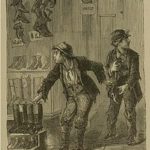 How can anyone steal something which is already there?
How can anyone steal something which is already there?
Mark’s own study of Proverbs shows how much more wisdom he has to learn. Dr. Mark Eckel is president of The Comenius Institute.
